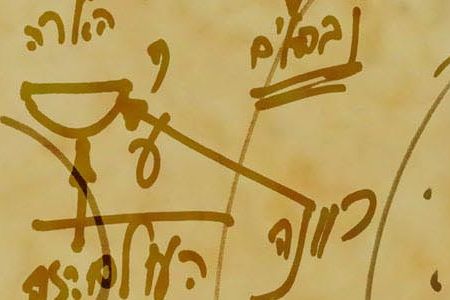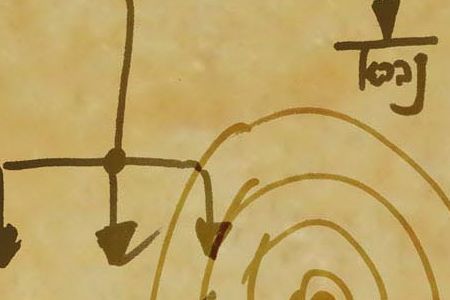Genesis, 37:1-40:23
This Week’s Torah Portion | Dec 15 – Dec 21, 2024 – 14 Kislev – 20 Kislev, 5785
In A Nutshell
In the portion, VaYeshev (And Jacob Sat), Jacob dwells in the land of Canaan. The protagonist of this portion is Joseph, Jacob’s youngest son. Joseph was gifted with a knack for prophetic dreams. In one of them, he sees himself ruling over his brothers. He tells them about it and turns their envy against him.
His brothers lead the cattle to Shechem to graze there, and his father sends him to them. On his way he meets a man and asks him about his brothers: “I seek my brethren” (Genesis 37:16). By the time Joseph finds his brothers they are already conspiring to kill him because of their envy. Reuben manages to prevent them from committing the murder and the brothers decide to throw Joseph in a pit, instead, in order to sell him to the Ishmaelites. A convoy of Midianites that passes by takes Joseph with them down to Egypt.
When Joseph arrives in Egypt, he hides in the home of Pharaoh’s captain of the guard, Potiphar. Potiphar’s wife tries to seduce Joseph but he refuses. She avenges by saying that Joseph tried to force himself on her, and he is thrown to the dungeon.
In the pit, Joseph meets Pharaoh’s two officials, the chief cupbearer and the chief baker. He also discloses his gift for prophetic dreams. He predicts that within three weeks the chief cupbearer will be released, and the chief baker will be hanged. Joseph asks the chief cupbearer that upon his release he will go to Pharaoh and tell him that he, Joseph, is jailed for no reason and that he should be released.
Commentary by Dr. Michael Laitman
This portion contains a profound spiritual message. It narrates the correction of the soul, which is man’s purpose in life, and the reason why the Torah was given. Initially, the evil inclination appears, as it is written, “I have created the evil inclination, I have created for it the Torah as a spice,” for “the light in it reforms it.” “Reforming” means returning to a state of “love your neighbor as yourself.” That is, it brings a person back to the quality of bestowal, similarity with the Creator. This is what we should achieve, as it is written, “Return, Oh Israel unto the Lord your God” (Hosea 14:2).
The Torah demonstrates how the ego, the will to receive, keeps changing until it is corrected. In the example shown in this portion we see how all our qualities connect, then separate, manifesting imbalance among them until they beget more advanced qualities, closer to bestowal.
Jacob is the beginning of the quality of bestowal within us. Abraham, Isaac, and Jacob are the three patriarchs. Jacob is actually the senior, containing both the desire to receive and the desire to bestow within us, as it is only possible to elicit the middle line using both. The middle line, Jacob, is still not attributed to the level of execution in us, but to the level of decision making.
The expression of Jacob’s execution level is his sons, from Reuben, the eldest, to Joseph, the youngest. And precisely in this hierarchy do the qualities within us hang down. This is how our ego, in all its (still incorrect) forms, is corrected. The one who completes them is Joseph, the righteous. He gathers all the previous qualities into the quality of Yesod (foundation), which is called “the righteous Joseph,” or “a righteous, the foundation of the world” (Proverbs 10:25).
Continue reading “VaYeshev (And Jacob Sat) Parsha – Weekly Torah Portion”

